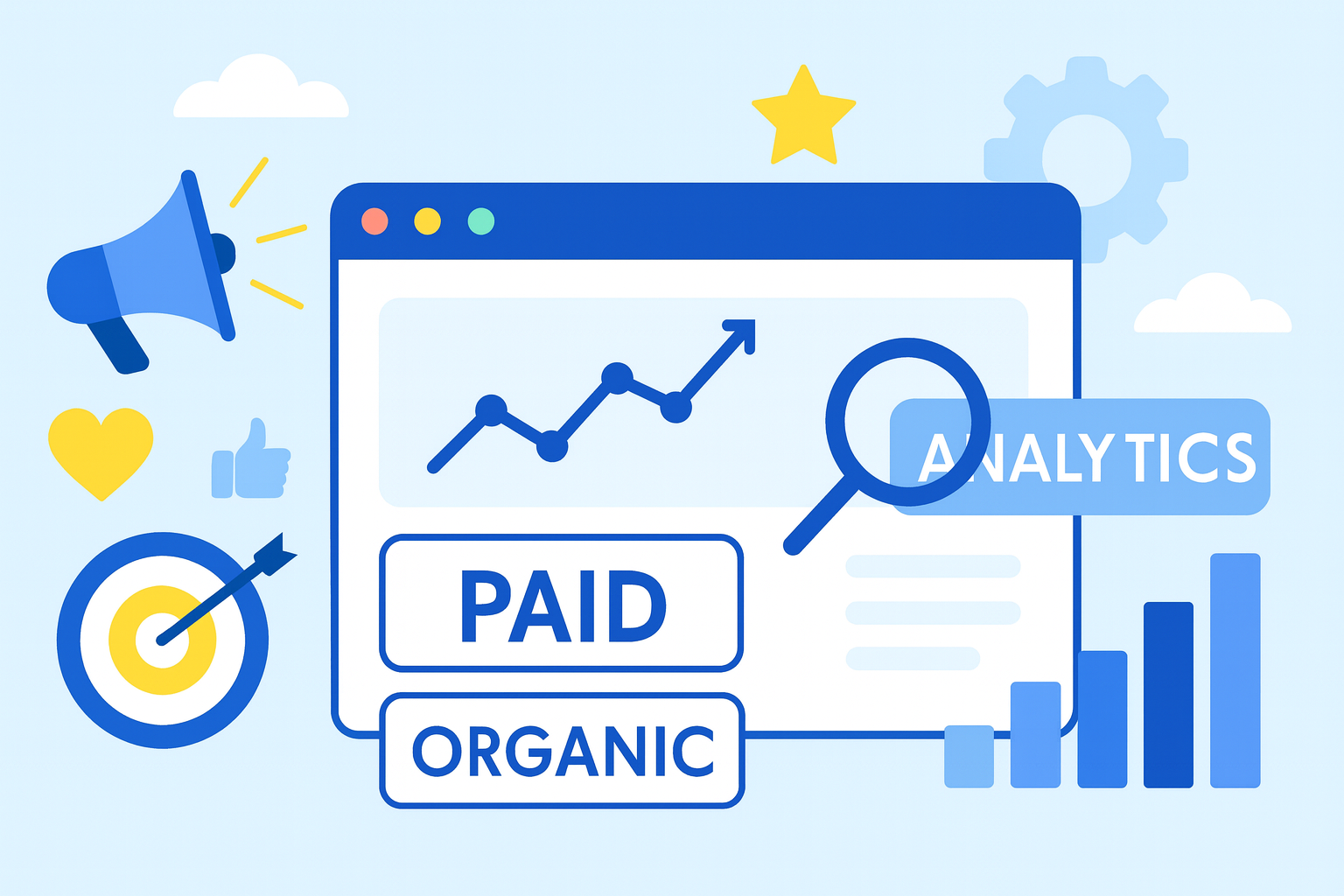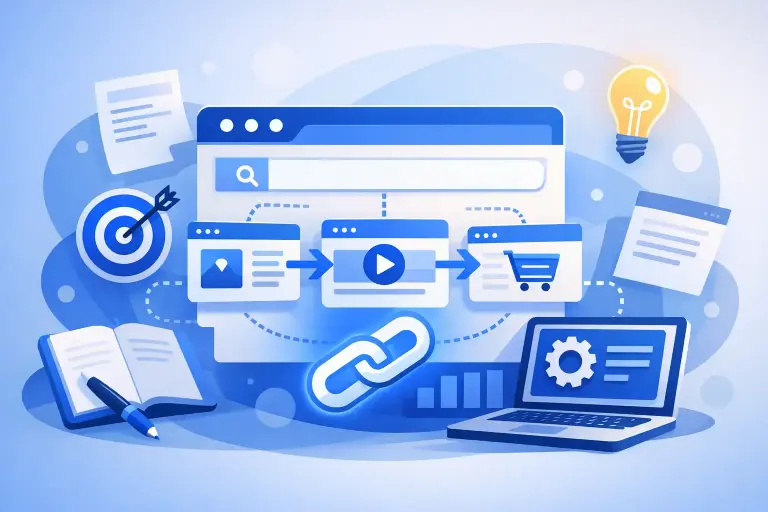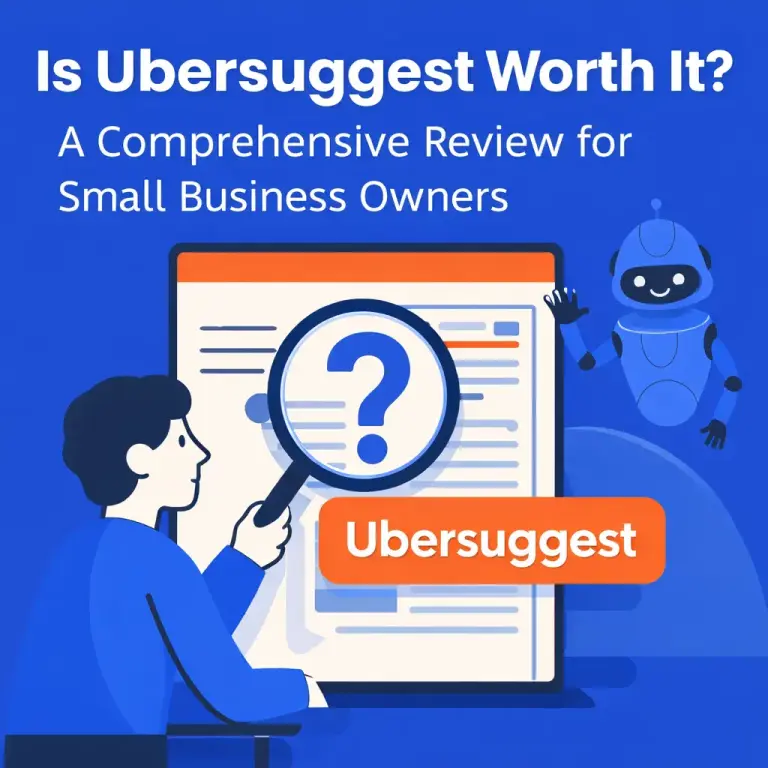When it comes to digital growth, the alphabet soup of “SEM SEA SEO” can get confusing. Each plays a different role in driving traffic and visibility, but understanding how they work together is key to building a balanced marketing strategy.
In this blog, HeyTony breaks down the differences, explores where to invest your time and budget, and helps you decide which strategy makes sense for your goals.
Understanding the Basics: What Is Search Marketing?

Search marketing, also known as SEM, is an umbrella term that covers all strategies used to increase a website’s visibility in search engine results, both paid and organic.
- SEO (Search Engine Optimization) focuses on improving organic rankings through quality content, site structure, and authority building.
- SEA (Search Engine Advertising) involves paid ads, typically pay-per-click (PPC) campaigns, that place your brand at the top of search results.
- SEM (Search Engine Marketing) encompasses both SEO and SEA, blending long-term organic growth strategies with immediate paid visibility.
So in simpler terms, SEM is about marketing your brand on search engines through both free (SEO) and paid (SEA) methods.
SEM SEA SEO: What Makes Them Powerful?
Each channel within SEM, SEA, and SEO plays a distinct role.
- SEO is all about earning your visibility. You optimize your content, improve site speed, build backlinks, and create value for users. It’s slow but sustainable.
- SEA, on the other hand, is about buying visibility. You pay per click or impression and can target specific keywords, demographics, and regions for fast results.
- SEM combines both. It’s a holistic strategy that leverages short-term paid campaigns while building long-term organic authority.
Paid ads can deliver instant results, but organic content builds credibility over time.
Which One Should You Focus On?

Choosing between SEM, SEA, and SEO depends on your business goals, timeline, and budget.
- Startups or new websites should lean on SEM and SEA for quick exposure while building SEO authority.
- Established brands can focus more on SEO for consistent, low-cost traffic.
- Seasonal or promotional campaigns benefit from SEA to capitalize on short-term opportunities.
Ultimately, a hybrid strategy, combining paid and organic, is the smartest move. Focus on SEM marketing to gain insights, SEO to build credibility, and SEA to dominate high-intent moments.
Where SEM Marketing Shines
SEM marketing is ideal for businesses looking for quick wins, product launches, or high competition niches. If you’re entering a new market, SEM services can put you in front of customers right away while your SEO strategy takes shape.
Benefits of SEM include:
- Immediate visibility and traffic
- Targeted audience segmentation (by location, device, or time)
- Performance tracking through measurable metrics
Platforms like Google Ads or Microsoft Ads are perfect for testing campaigns and optimizing ad spend. When done strategically, SEM becomes a data powerhouse that fuels smarter organic growth.
SEM services can feel overwhelming at first—but if you’re still figuring out how they compare to SEO or SEA, this beginner-friendly SEM guide breaks it all down. It’s perfect for business owners who want clarity before investing in ads.
The Power of SEO for Sustainable Growth

While SEM brings fast visibility, SEO builds staying power. With consistent optimization, your site can attract traffic without ongoing ad spend.
SEO builds your foundation with quality content, optimized meta tags, and trustworthy backlinks. Over time, it reduces dependency on ads and strengthens your overall digital reputation.
For example, our clients for digital marketing in Hamilton often start with SEO to build strong content and backlinks that drive lasting organic growth. Many also layer in SEA to capture high-intent searches and fast growth.
Conclusion: SEM, SEA, and SEO strategies
The question isn’t whether to choose between SEM, SEA, or SEO, it’s how to make them work in harmony. When you align your paid and organic efforts, you build a digital presence that’s both visible and valuable.
Want help finding the right balance? HeyTony’s experts can tailor a marketing plan that fuels both short-term wins and long-term success.
FAQ’s About SEM, SEA, and SEO
What’s the main difference between SEO and SEM?
SEO is unpaid optimization for organic visibility, while SEM includes both SEO and paid advertising strategies like SEA.
Is SEM better than SEO?
Not necessarily. SEM gives faster results, but SEO is more sustainable. A mix of both delivers the best outcome.
How does SEA fit into SEM?
SEA is the paid advertising portion of SEM, offering immediate exposure in search results while SEO builds long-term authority.
What is the best strategy for small businesses?
Start with SEM for quick growth, then transition to a balanced mix emphasizing SEO for sustainable traffic.
Explore More



